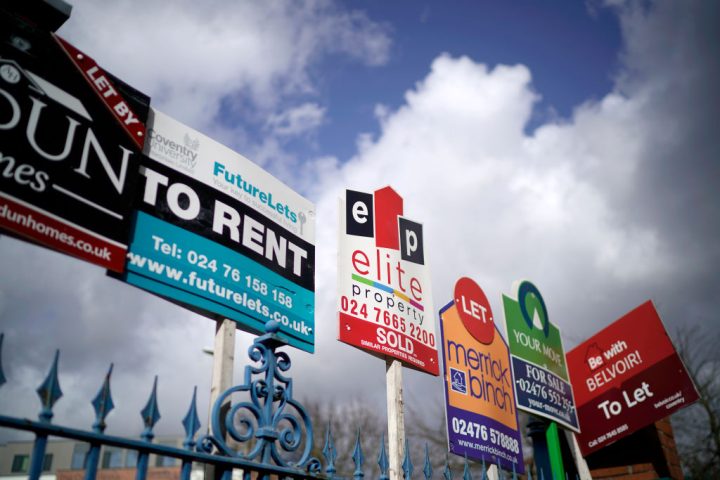If there ever were a couple of policies the government desperately needs to give it a chance of being re-elected next year it is rental reform and leasehold. Both in their own way would make life a good deal less miserable for the younger voters who have drifted away from the party in recent years.
How depressing then that Rishi Sunak seems to have gone cold on them. It nastily exposes the Conservatives’ Achilles’ heel: its tendency to drop good and popular proposals in the face of staunch lobbying by those with vested interested.
By failing to fulfil its promise to abolish leasehold, the government is showing itself to be the prisoner of vested interests
The government has today reiterated proposals for a Rental Reform Bill which, it maintains, will do away with ‘no fault’ evictions. That would give private renters more of the security enjoyed by social housing tenants, ending the situation which exists at present where tenants can find themselves having to move home every six or 12 months because their tenancy agreement has come to an end.
However, it is a year ago today that the government first announced its proposals. The Department for Levelling Up, Housing and Communities had said it would publish the bill this week but all it will now say is that it should be published ‘shortly’. Some backbench Conservative MPs have been known to be angered by the proposals, believing them to be harmful for landlords.
As for leasehold reform, levelling up secretary Michael Gove said back in January that the government would abolish leasehold and that all new developments would have to be an alternative form of tenure called commonhold. In the latter, flat-owners jointly own outright the building in which their flats are situated.
Leasehold, by contrast, isn’t really a form of property-ownership at all: a lease is a long rental agreement in which the leaseholder agrees to pay all maintenance and repair costs for the building, and pays ground rent throughout the terms of the lease. Eventually, the leaseholder’s asset will decline to zero as the lease expires. Many leaseholders can report the drawbacks of buying property in this way: in some cases ground rents double every decade, while service charges can be excessive.
The government has addressed some of these concerns by setting ground rents at zero for new developments. It also says it will make it easier for leaseholders to buy a share of their freeholds, but won’t say how.
However, No. 10 is reported to be blocking the proposal to abolish leasehold outright. The problem is that successive housing secretaries have been promising reform for years, but the proposals have come a cropper every time after heavy lobbying by the vested interests who own the freeholds to apartment buildings.
The question is, whom does the government want to annoy the more: wealthy investors who own the freeholds to these buildings, or the owners of the nearly 5 million leasehold properties in Britain? Many of the latter are young, aspirational people who have stretched themselves to buy homes in London only to find that they don’t really own them at all – they are mere tenants.
Most of the world lives quite happily without leasehold. Indeed, it doesn’t exist in Scotland, where owners of flats are joint-owners of the whole building. By failing to fulfil its promise to abolish leasehold, the government is showing itself to be the prisoner of vested interests – just as it proves every time it promises to tackle cowboy parking firms but fails to do so properly.
The government has been accused of being ‘populist’, yet in some respects it is the exact opposite. It ends up blocking reforms which could earn it the popularity it so desperately needs in order to retain power.







Comments